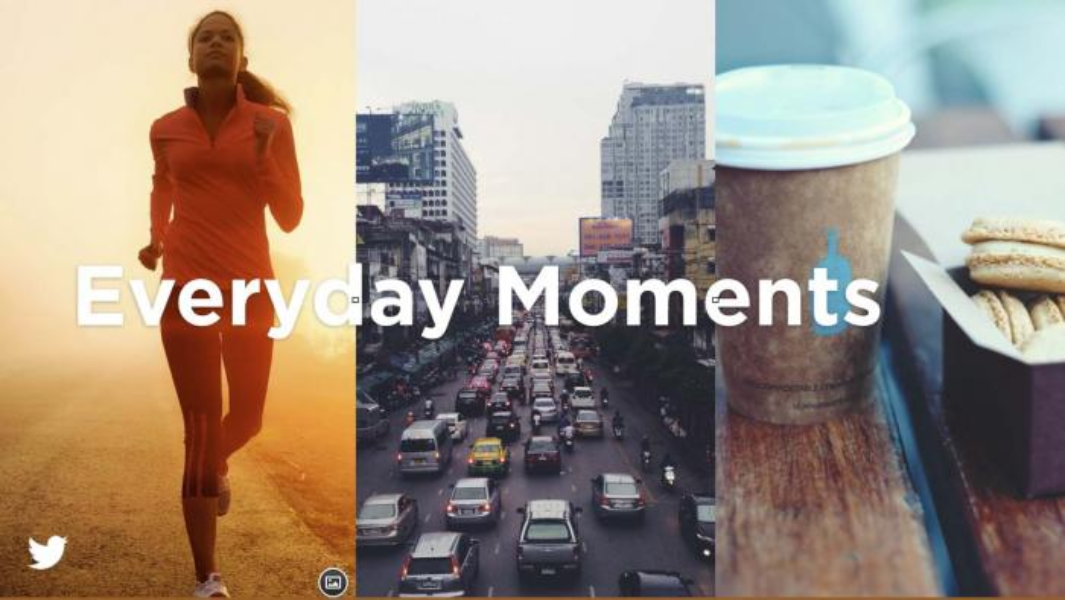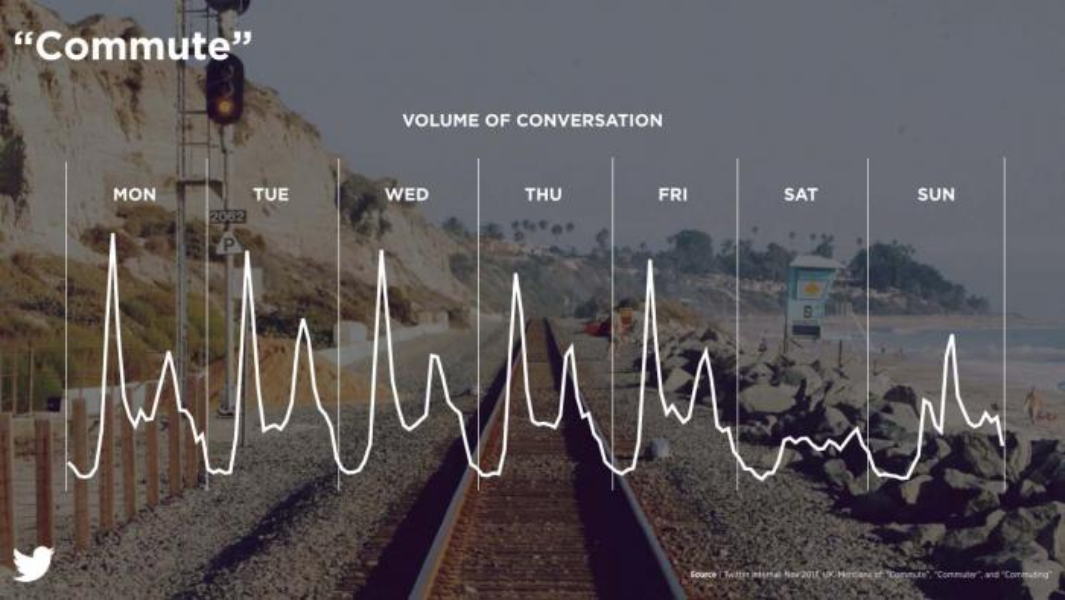Major events like the World Cup and Wimbledon provide fantastic ways for brands to connect with consumers on Twitter. However, once the trophies have been lifted, and the crowds have moved on, there are many other opportunities waiting. These are what we call Everyday Moments that marketers with an always-on approach to Twitter can tap into.
To underscore the scale of how many chances there are for brands that take advantage of these Everyday Moments, consider this: the average consumer unlocks their mobile phone as many as 110 times a day (Locket App research, 2013).
That’s a mind-boggling number, and understanding its implications has huge potential for marketers. It underscores how our mobile phones are actually gateways to content discovery. Perhaps most important, it indicates that how we are discovering this content is rapidly changing. For instance research by GfK earlier this year found huge growth in the numbers of people discovering original digital video via social media, up 70% between 2013 and 2014.
That study neatly articulates how people are always on the lookout for new content. Crucially, this is not just content they enjoy on their own; if they like it, they are very likely to share it. Nielsen found* that the top reason for those who have retweeted a brand did so because they liked the content.

Everyday opportunities
Think of it this way: when UK users do Tweet 55% of them talk about what they are doing right now, according to Nielsen*. It might be they are on the platform waiting for a train, in the queue at the local coffee shop, or out for a run at the weekend. Those are chances for a brand to connect, just as these brands have done:
These three examples of an always-on approach show how some brands are tapping into the rhythm of Everyday Moments. What should make pursuing this strategy appealing to marketers is that these moments are very accessible because they are easily predictable. That’s why they represent great ways for brands to spark daily conversation and engage users with the right message.

Everyday context
To put Everyday Moments into context, over the the course of the Glastonbury weekend, there were more than a million Tweets about the festival sent. A festival is a great opportunity that comes around once every year. Compare that to the conversations taking place about TV, the pub or running on a weekly or monthly basis:
How elevating the Everyday delivers
Knowing that people are talking about TV, running and socialising in great numbers everyday means there are many ways for brands to connect. For those that do, the rewards can be considerable. For example, Brilliant Noise carried out research in late 2013 for Twitter and after analysing 46 UK brands, it found that those who employ an always-on approach to Twitter enjoy engagement in a number of different ways compared to a campaign-focused strategy:
This study also found that always-on brands grow their mentions in a sustained way. Historically, there has been a great deal of academic analysis into the link between share of voice and market share: It is a point echoed by Nielsen in its 2009 study:
“All things being equal, a brand whose share of voice is greater than its share of market is more likely to gain market share.”
Nielsen, “Budgeting for the upturn: Does share of voice matter?” - 2009 study
This research highlights how important always-on activity is in a mobile world: 80% of UK users access Twitter via their mobile device (Nielsen, November 2013). It also points to the potential business impact Everyday Moments can have on growing a brand’s business through conversations with consumers on Twitter.
As every time one of those conversations takes place, another connection is made. If a brand is making those connections on a regular basis, then its chances of success are likely to grow.
*Source Nielsen Twitter Consumer Survey, UK November 2013
This page and certain other Twitter sites place and read third party cookies on your browser that are used for non-essential purposes including targeting of ads. Through these cookies, Google, LinkedIn and NewsCred collect personal data about you for their own purposes. Learn more.